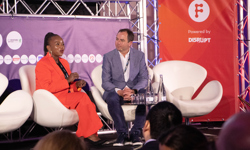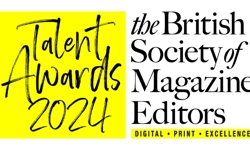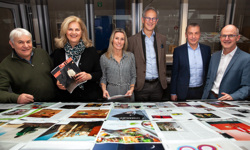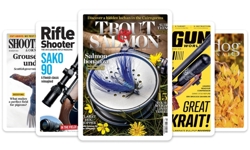Holland has always been a top ten market for British magazines, and indeed this should be no surprise considering that the Netherlands is one of the UK’s largest export markets, and one of the world’s major trading centres. Add to this the fact that 75% of the total population speak English and you can easily see why Holland would be an attractive proposition to any UK publisher. However, the reality is that Holland has suffered dramatically from the tobacco advertising ban imposed in 2003, which resulted in a fall in advertising revenue, and consequently lead to circulation sales falling by 6% between 2003 and 2004.
In addition, with a population of 16.3 million, and an unemployment rate of 6.7%, consumer confidence and spending in Holland has suffered in recent years. At the beginning of 2005, consumer spending hit a 20 year low of minus 1.5%, and although this recovered to just over 2% by the end of the year, economic growth struggled at 1.5%. Against this backdrop, it is no surprise that magazine publishers have found the last 18 months extremely difficult. With declining sales and few innovative new launches, retailers have seen their shelves becoming increasingly overcrowded, and they have reacted by aggressively culling their existing range and being more selective in the titles they take.
However, a closer inspection of the magazine market in Holland shows that, although the outlook seems gloomy, there are considerable opportunities for publishers to capitalise upon to develop their publications, and, with a little creative innovation, publishers can be successful in this most demanding of markets.
Imported press
In 2005, imported press, sold via the newsstands, accounted for 5% of total magazine sales in Holland (equating to £23m in retail revenue). British magazine sales, alone, accounted for £4.5m of this total and lead the field for imported press. Year on year, however, sales are down by 11%. By comparison, newsstand sales for domestic titles account for 45% (£287m) of total sales. The remaining 50% (£318m) of magazine sales are sold via subscription.
Consumer profile
80% of purchasers of UK press in Holland are 30 years old and over, with a high to very high level of education. 82% are Dutch, and, interestingly, more men than women buy imported press. Many buy more than one magazine per week and frequently choose a UK title over a domestic one. Given this information it is clear that many opportunities exist for the astute UK publisher.
Distribution
Unlike the UK, magazine distribution in Holland is direct to retail. This means that there are no wholesalers in the distribution chain, and, therefore, the major distributors not only undertake the marketing and development of magazines, but also use their own transportation to deliver direct to every newsagent and press retail outlet.
The benefits to publishers with this set up are twofold. By bypassing wholesale, publishers are able to avoid the additional margins that wholesalers would require, thus making it considerably more cost effective than in many international markets. In addition, the time from UK shipment to actual on sale is considerably less than in other European markets. Magazines shipped on a Tuesday from the UK are usually on sale the following Monday in Holland.
Publishers have a choice of working with two main distributors: Aldipress (owned by Sanoma, the largest Dutch publisher), who accounts for 70% of the total press distribution, and Betapress (owned by Audax, the third largest publisher). Betapress accounts for 30% of total press distribution, however they are the largest distributor of British publications. Both offer a very similar service, and publishers should seek guidance from their UK distributor on which company offers the best fit for their titles.
Retail
There are approximately 9,000 press outlets in Holland, of which only 5,000 take imported press. 81% of the total retail universe is multiple owned, with independents making up the rest. Bookshops and kiosks are the major stockists of imported press, although this sector only accounts for 27% of total press sales in Holland. These kiosks are primarily owned by either AKO (a subsidiary of Audax and the major retail chain at Schipol Airport) or Bruna (owned by the Postkantoren BV – part of the state-owned postal service). Schipol Airport, with 14 outlets, accounts for £4 million of magazine sales revenue and is extremely important to overseas publishers.
Supermarkets, such as Albert Heijn, also stock magazines, and, although they account for 14% of the total press retail universe, sales account for 51% of total revenue. It is therefore important that publishers are able to tap into this rich source of sales. As a rule, there are no retailer listing fees, with each title accepted or rejected on merit. However, in reality, with limited ranges available, retailers are extremely selective in the export titles they take. Publishers have several different options open to them to ensure their titles are listed.
Promotion
By far the easiest (but most expensive), is to purchase a promotion. These are offered by AKO and Bruna, as well as Albert Heijn, and range from a typical metre run promotion (purchasing a metre of shelving solely for a magazine), to various promotional display stands and window displays. Prices range from £500 per week, through to £1,500 for a major display at Schipol Airport. By purchasing one of these chain promotions, a publisher is guaranteed entry into all of the stores available, and remains in the range for up to three issues whilst sales are determined. Publishers should consult their distributor to determine which promotions are best suited to their needs.
Local language
Publishers may also wish to consider translating their titles into Dutch, so that they can reach a much larger readership. By producing a local language edition, publishers are treated as a domestic publisher, allowing mass-market distribution, and attracting domestic publisher terms, which are more favourable than imported press. Entry into all 9,000 stores is guaranteed. In addition, Dutch language titles can be distributed to the Dutch speaking half of Belgium, offering additional sales opportunities.
Unique
It’s no surprise that the UK has one of the most extensive and unique ranges of magazine in the world. Many topics considered ‘specialist’ in the UK, may have greater appeal in overseas markets, and in an overcrowded market such as Holland, distributors and retailers are crying out for innovation. British publications offer that range of diversity, and over the past 12 months many specialist and mid range titles have succeeded in gaining entry into the chains, where the more mainstream and me-too titles have failed.
Added value
Cover mounting has only recently become the norm in many overseas markets, and UK publications have always had a competitive edge by cover mounting. Even today, the majority of domestic titles in Holland do not cover mount, and UK publishers should therefore consider including supplements and cover mounts on export copies, as well as on their UK ones, in order to attract a greater readership.
Price and VAT
It is important for UK publishers to seek information and advice from their export distributor with regard to pricing their product competitively. VAT on magazines in Holland is 6%, and this is added to the eventual selling price. This applies to all magazines sold, however imported UK publications are still priced much higher than their domestic competitors, simply because of the added freight and distribution costs. It is true that imported titles are considered to be premium product, and therefore people expect to pay a higher price. However UK magazines can win readership from other imported and domestic titles, by simply funding a lower, more competitive price. As a price guide, the average price of an imported publication in Holland is €6.30, whilst a domestic title is usually under €3.00.
Unsolds
Publishers should be aware that Dutch retailers have up to 5 months from on sale date to return any unsold magazines. This causes some difficulty for publishers wishing to gain a steer on how their magazines are performing issue on issue. On a positive note, however, unsold copies can be collected and retained, unlike in the UK market, providing publishers with the opportunity of reusing these old issues for future promotions, such as value packs and 2 for 1’s. There is a small charge for the collection and retention of these unsolds, however the benefit generated from reusing these old copies far outweigh these costs.
Subscriptions
Subscriptions account for 50% of total magazine sales in Holland, and are a rich source of revenue for publishers. Both Aldipress and Betapress offer a subscription service for publishers in addition to newsstand distribution, and publishers should take advantage of this service to further develop their business. 60% of subscription distribution is via the national postal service. One feature of the Dutch subscription market is the role of clubs as publishers, with organisations such as the Dutch Motorist Association setting themselves up as publishers, exclusively selling their publication through subscription service alone.
Conclusion
Magazine sales in Holland have been through a difficult time in recent years, and the situation continues to prove challenging for publishers. However, an astute publisher will always succeed with a little innovation and creative thinking. The biggest hurdle is actually getting a magazine accepted for distribution by both the distributor and retailer, and it’s not necessarily the mainstream titles that always succeed. In an overcrowded market, full of me-too titles, retailers are on the lookout for unique publications to freshen up their shelves, and UK publishers are best placed to bring that uniqueness to the market. And, once there, they’ll find the full support and co-operation of a distribution channel, eager to take advantage of every single available sales opportunity.
FEATURE
Dutch option
Ask any publisher what they associate with Holland, and a vibrant magazine market may not end up high on the list. Tulips definitely, windmills possibly, the Red Light District - obviously, but magazines ... well possibly not. But, as COMAG’s Paride Forte explains, Holland has always been a key market for magazine sales, and despite difficult times of late, there are still opportunities for publishers.










